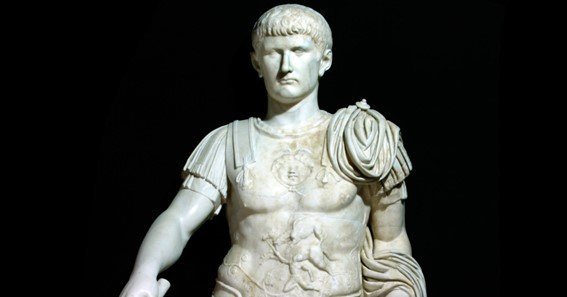Gaius Julius Caesar Augustus Germanicus, commonly known as Caligula, was the third Roman emperor, ruling from AD 37 until his assassination in AD 41. Born on August 31, AD 12, in Antium, Italy, he was the son of the esteemed general Germanicus and Agrippina the Elder, making him a member of the prominent Julio-Claudian dynasty. Caligula’s reign is often remembered for its extreme extravagance, alleged madness, and tyrannical actions, which have made him one of history’s most infamous figures.
Early Life and Rise to Power
As a child, Gaius accompanied his father on military campaigns, where soldiers affectionately nicknamed him “Caligula,” meaning “little boot,” due to the miniature military attire he wore. Following the deaths of his father and later his mother, Agrippina, Caligula lived under the guardianship of his great-uncle, Emperor Tiberius. Upon Tiberius’s death in AD 37, Caligula ascended to the throne, initially being welcomed with enthusiasm by the Roman populace.
Reign and Notoriety
Caligula’s early reign began on a positive note, but he soon exhibited behaviors that alarmed the Roman Senate and citizens. Historical accounts describe his actions as increasingly erratic and autocratic. He is said to have declared himself a living god, demanded worship, and engaged in extravagant construction projects. Notably, he initiated the construction of two aqueducts in Rome: the Aqua Claudia and the Anio Novus. His reign also saw the annexation of the client kingdom of Mauretania as a Roman province. However, his alleged cruelty, including executions without trial and rumored incestuous relationships, contributed to his notorious reputation.
Assassination and Legacy
Caligula’s tumultuous reign culminated in his assassination on January 24, AD 41, orchestrated by officers of the Praetorian Guard, senators, and courtiers. Following his death, the Senate attempted to restore the Roman Republic, but the Praetorian Guard declared his uncle, Claudius, as the new emperor. Caligula’s brief and controversial rule has been the subject of extensive historical analysis, with debates about the accuracy of ancient sources and the true nature of his leadership.
Frequently Asked Questions
-
Who was Caligula?
- Caligula, born Gaius Julius Caesar Augustus Germanicus, was the third Roman emperor, ruling from AD 37 to AD 41.
-
Why was he nicknamed “Caligula”?
- The nickname “Caligula,” meaning “little boot,” was given to him by soldiers during his childhood when he accompanied his father on military campaigns dressed in miniature military gear.
-
What is Caligula known for?
- Caligula is known for his extravagant and controversial reign, marked by alleged acts of cruelty, demands for deification, and ambitious construction projects.
-
How did Caligula’s reign end?
- His reign ended with his assassination in AD 41, orchestrated by members of the Praetorian Guard and other political figures.
-
What impact did Caligula have on Roman history?
- Caligula’s reign is often cited as an example of the potential dangers of absolute power and has been a focal point in discussions about the complexities of historical narratives and leadership.










